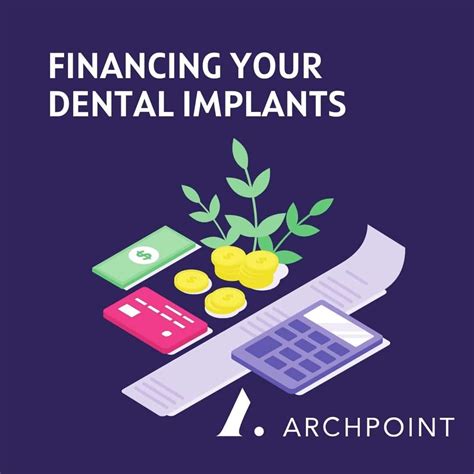Berikut adalah postingan blog tentang pembiayaan implan gigi:
Financing Options for Dental Implants: A Complete Guide
Dental implants offer a permanent and lifelike solution for missing teeth, significantly improving your oral health, confidence, and overall well-being. However, the cost of dental implants can be substantial, making it a significant investment for many individuals. Fortunately, several financing options are available to help make this life-changing procedure more accessible. This comprehensive guide will explore various financing methods to help you find the right fit for your needs and budget.
Understanding the Cost of Dental Implants
Before diving into financing options, let's address the elephant in the room: the cost. The price of dental implants can vary considerably depending on several factors, including:
- The number of implants needed: Replacing a single tooth will be less expensive than a full mouth reconstruction.
- The complexity of the procedure: Cases requiring bone grafting or sinus lifts will typically cost more.
- Your geographic location: Costs can fluctuate between regions and even between dental practices within the same area.
- The dentist's fees: Different dentists have different pricing structures.
While a precise cost estimate is impossible without a consultation, understanding these variables helps you prepare for potential expenses and explore financing options effectively.
Exploring Financing Options for Dental Implants
Several avenues can help you manage the financial aspect of dental implant treatment:
1. Dental Insurance:
- Check your coverage: Many dental insurance plans offer some coverage for dental implants, though the extent of coverage varies widely between providers. Review your policy carefully or contact your insurance provider to determine your benefits. Even partial coverage can significantly reduce your out-of-pocket costs.
- Maximize your benefits: Understand your annual maximums and deductibles to plan your treatment effectively and utilize your coverage fully.
2. Dental Payment Plans:
- In-office financing: Many dental practices offer their own in-house payment plans, allowing you to spread the cost of your treatment over several months or years with manageable monthly installments. This is often a convenient and straightforward option.
- Interest rates: Be sure to inquire about interest rates and any associated fees before committing to an in-office payment plan.
3. Third-Party Financing Companies:
- CareCredit: A well-known provider of medical and dental financing, CareCredit offers various payment plans, often with promotional periods that feature 0% interest.
- Other lenders: Several other financial institutions specialize in healthcare financing. Research your options to find the plan with the best terms and interest rates.
- Credit check: Keep in mind that these companies will typically perform a credit check, so your credit score will play a role in the approval process and interest rate you qualify for.
4. Health Savings Accounts (HSAs) and Flexible Spending Accounts (FSAs):
- Tax advantages: If you have an HSA or FSA, you might be able to utilize pre-tax dollars to cover the cost of dental implants, resulting in significant tax savings. Check your plan documents to confirm eligibility.
- Limitations: Remember that there are usually annual contribution limits and specific eligibility requirements for HSAs and FSAs.
5. Personal Loans:
- Bank loans: Consider a personal loan from your bank or credit union. Personal loans are more flexible compared to medical-specific financing plans, potentially offering lower interest rates depending on your creditworthiness.
- Interest rates and fees: Be sure to compare interest rates and fees from different lenders to secure the best deal.
Choosing the Right Financing Option
The optimal financing solution depends on your individual financial situation and the specifics of your dental implant treatment. Consider the following factors:
- Your budget: Determine how much you can comfortably afford to pay monthly.
- Your credit score: A higher credit score often qualifies you for better loan terms and interest rates.
- The length of the payment plan: Choose a plan with a repayment period that fits your financial circumstances.
- Interest rates and fees: Carefully compare the total cost of different financing options, factoring in interest and any associated fees.
By understanding the costs involved and exploring the various financing avenues, you can make an informed decision and access the life-enhancing benefits of dental implants, regardless of your budget. Remember to consult with your dentist and explore your options thoroughly before proceeding.
